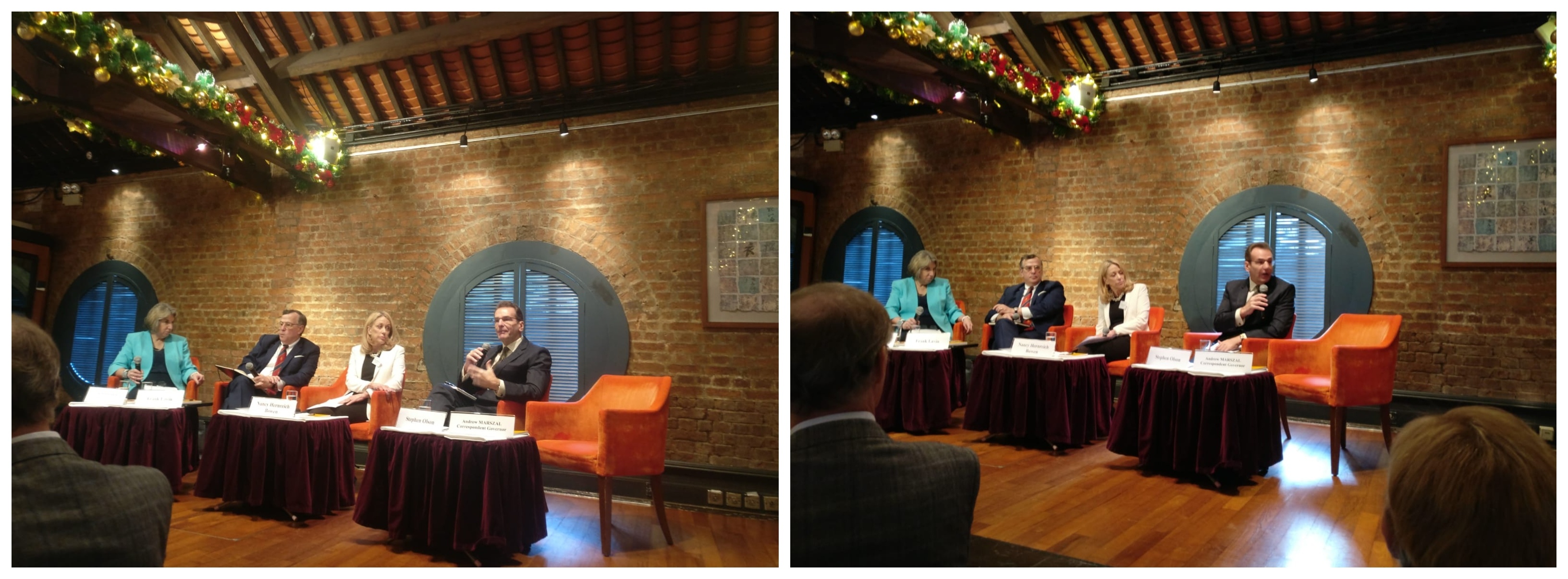
The event, titled “U.S. politics following the midterm elections”, saw experts from both sides of the aisle, all with US government experience, distilling the fallout from the US midterm elections that took place on November 6, 2018. The panel looked at the lessons from the election and assessed the impact of the midterm elections on US trade policy.
Research Fellow Stephen Olson focused on the trade and economic implications from the midterm election. Olson was of the view that Democrats will have more leverage to force greater degree of consultation and greater role for Congress in the conduct of trade policies.
“The prospects of passage of NAFTA has become extremely more complicated,” said Olson. He also pointed out that the US midterm result will not have any effect on the strong trade stance taken by the current administration in dealing with China. “If you look at some of the strongest kind of China trade hawk voices in the United States, they have been Democrats. So, no one in Beijing should breathe a sigh of relief as a result of the midterm election,” Olson said.
On the 90 days ceasefire between US and China, Olson explained that the trade issues between the two countries cannot be meaningfully addressed or resolved in a 90-day period. However, they can reach a symbolic, or a superficial agreement that would allow the President to announce the trade war is over and they won.
“Heading towards 2020 US election, the real wild card is how things are going to play with US-China on trade,” added Olson.
Following the panel discussion, the event opened up for a lively Q&A from the attendees. On the truce agreement between the US and China, Olson said that both the countries realized that it “made no sense” in continuing to escalate the fight as the potential costs were starting to get into the red zone and it was the right time to reduce the temperature or at least take a “deep breath”.
The panelists at the event included:
- Nancy Hernreich Bowen, Senior Advisor, Teneo
- Stephen Olson, Research Fellow, Hinrich Foundation
- Frank Lavin, CEO and founder, Export Now
© The Hinrich Foundation. See our website Terms and conditions for our copyright and reprint policy. All statements of fact and the views, conclusions and recommendations expressed in this publication are the sole responsibility of the author(s).



